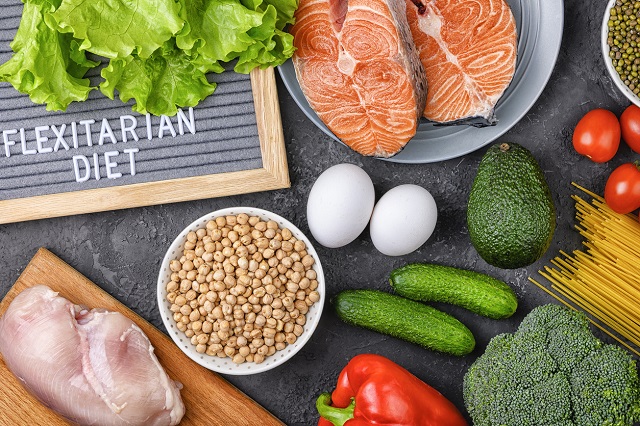
But rather than vegetarian or vegan, a flexitarian diet is best
ANALYSIS | AGENCIES | A new scientific literature review has found that vegetarian and vegan diets help improve cardiometabolic risk factors, such as elevated lipids, blood sugar, body weight, BMI, and inflammation.
The individuals studied also had a lower risk of ischemic heart disease and gastrointestinal and prostate cancers.
The authors of the study, which was published on May 15 in the journal PLOS ONE, further stated that people who ate vegetarian diets were at reduced risk for dying from cardiovascular disease.
They did note, however, that pregnant people eating vegetarian diets did not appear to have any difference in their risk of developing gestational diabetes and high blood pressure.
The authors wrote that prior studies have shown that diets low in plant foods and high in meat, refined grains, sugar, and salt are associated with a greater risk of death.
They said this suggests that eating a more plant-based diet should have the opposite effect, reducing the risk of cardiovascular disease and cancer.
To see whether this assumption held up, the researchers examined 48 papers published over a 23-year span. When they analyzed the two decades of compiled data, they found that the association between vegetarian and vegan diets and reduced cardiometabolic risk factors was quite strong.
The research team conceded, however, that the study had some limitations, such as variations in the exact diet followed, patient demographics, and study length.
Why plant-based diets help reduce health risks
Dr. Libbat Shaham, a board certified family physician with Medical Offices of Manhattan and contributor to LabFinder.com, who was not involved in the study, commented on the study, explaining that the observed improvements in health may come down to what plant-based diets don’t contain: cholesterol and high levels of saturated fat.
“Cholesterol and saturated fat over time are what lead to damage to, and obstruction in, blood vessels — the cause of heart attacks and strokes,” she explained.
Shaham went on to say that saturated fat is mostly found in animal foods and is solid at room temperature.
“Cholesterol is made in the liver,” she added. “Plants don’t have livers. Animals do.”
Dr. Sarah Bonza, a board certified physician specializing in family medicine and lifestyle medicine, who was not involved in the study, added that plant-based diets also may help reduce the risk of chronic diseases because of what they do contain, which are vitamins, antioxidants, and fiber.
“Fruits, vegetables, whole grain, legumes, nuts, and seeds … all contain vitamins, minerals, and phytonutrients that benefit people’s health,” she said. “With these meal plans, one may expect fewer inflammations and improved heart and immune health.”
Bonza additionally pointed out that the fiber in plant foods helps speed up the digestion process and keeps the gut microbiome healthy.
What’s the best plant-based diet?
While the study looked at vegetarian and vegan diets, Faith Krisht, a Registered Dietitian Nutritionist who was not involved in the study, advises that the best way to eat plant-based is to follow a flexitarian diet.
“Research shows that vegan and vegetarian diets are often deficient in essential fatty acids such as EPA and DHA, Vitamin B12, Vitamin D, and iodine,” she said. “These are all important nutrients for human health.”
A flexitarian diet — which focuses on eating mainly plant-based proteins while occasionally adding animal-based proteins — helps ensure that you are getting all the vital nutrients that you need.
Krisht also recommends eating a diet that is high in whole foods rather than one that is high in refined and ultra-processed foods.
“This means a diet that is rich in whole grains, beans, lentils, vegetables, fruit, seeds, nuts, minimally processed animal proteins,” she said.
According to Krisht, this ensures that you get plenty of healthy fiber and antioxidants while also avoiding added sugars, which can increase your risk of chronic disease.
 The Independent Uganda: You get the Truth we Pay the Price
The Independent Uganda: You get the Truth we Pay the Price





